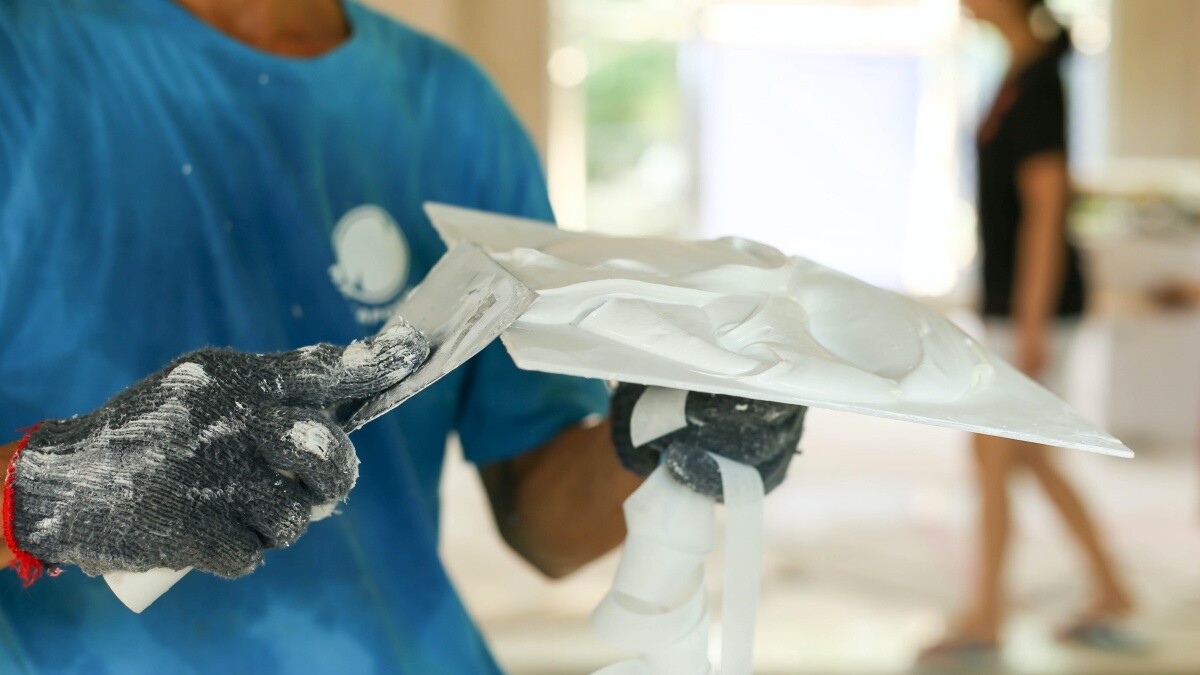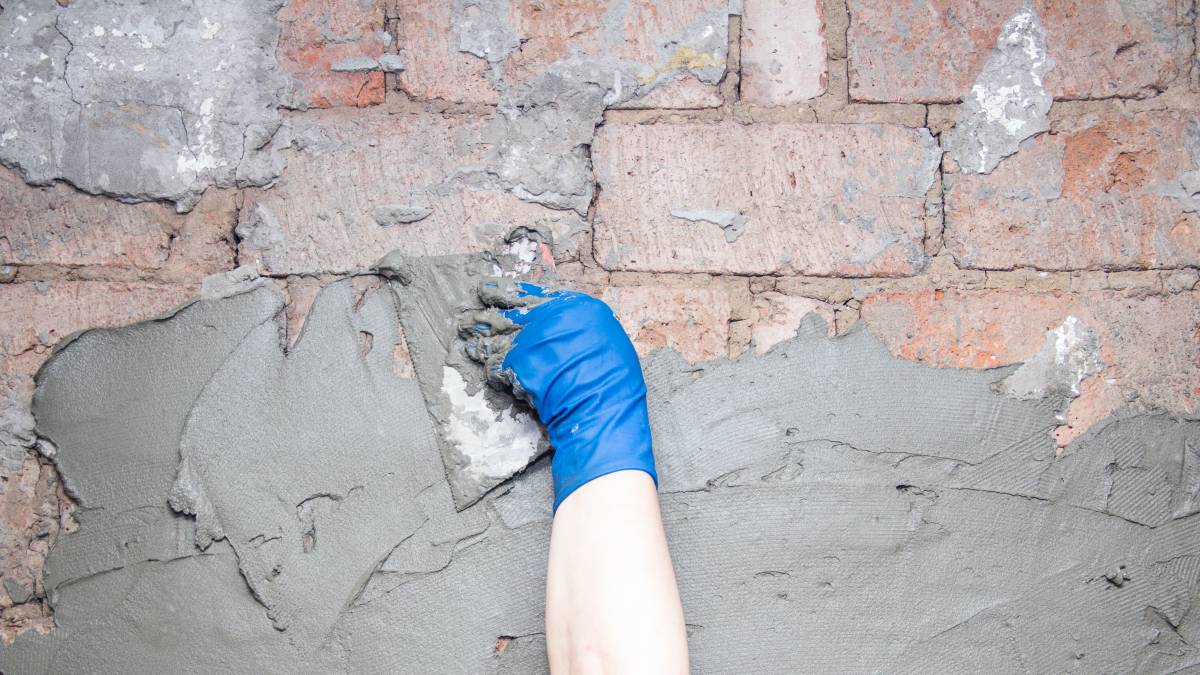- Home/
- Costs/
- Ceiling Plastering/
- Ceiling Plastering Cost Guide
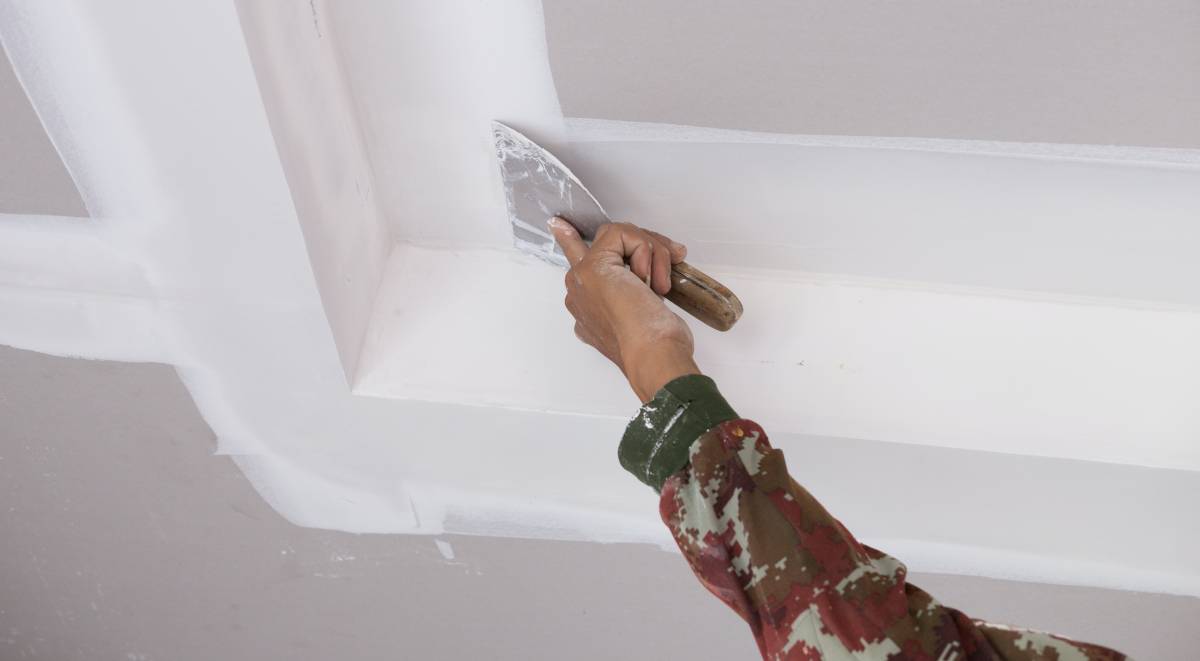
How much does it cost to plaster a ceiling?
Get a free quote nowPost to find a price. It's free and only takes a minute.
Price guide
£200 - £1,000
low
£200
median
£500
high
£1,000
Last Updated on
Over time, the ceilings of your home become prone to wear and tear. When cracks appear, painting over them may not be enough to cover up the unpleasant appearance. This may be a minor issue, but it can affect the overall look of your interiors. Aside from that, it can cause further damage to your property.
You want to look up to the ceiling and smile at its brilliant appearance, not frown upon its annoying cracks. Get some fresh plaster worked on to help restore your ceilings to their best appearance.
The job is time-consuming and messy by nature. It might be best to hire a professional if you don’t have the knowledge, skill, tools, and spare time to do it. The cost to replaster a ceiling depends on several factors, but the average range is around £200 for a small room, £400 for medium-sized ones, and £700 and up for larger projects. Read on if you wish to know the multiple factors that affect ceiling plaster repair costs.
What are the factors that affect the cost to plaster a ceiling?
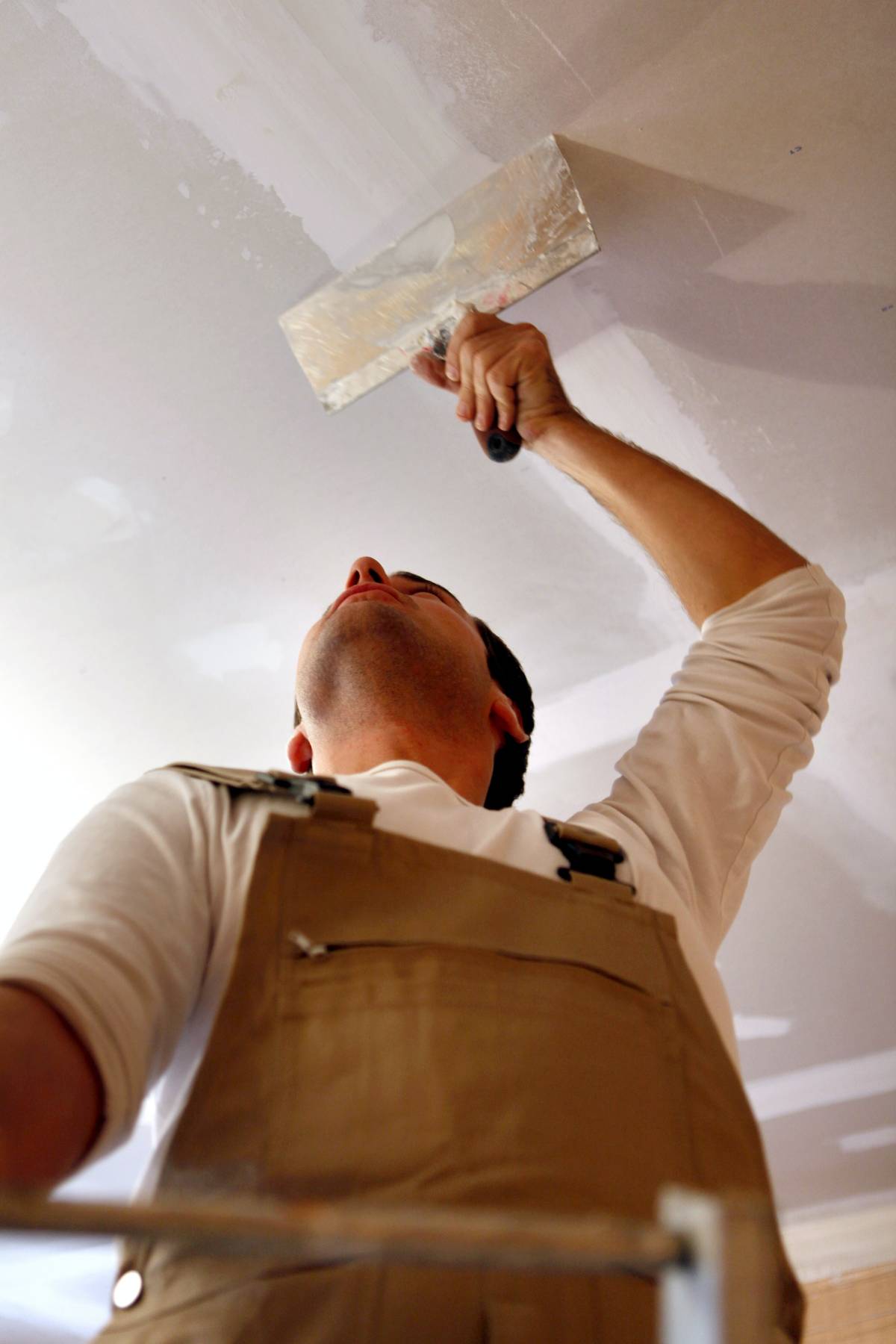
A few factors determine how much it costs to plaster a ceiling. Once you ask for a quote from a plasterer, you can also provide the following information for a more accurate quote.
- Size of ceiling. Before giving a quote, the plasterer may ask for specific details such as the ceiling measurement. Some also prefer doing an ocular to assess the size and the repair needs.
- Ease of access. The level of access to the ceiling will determine the difficulty of the plastering job since the lower ones tend to be easier to work with. If you have a high ceiling, the plasterer will need more time as it is challenging and usually needs scaffolding.
- Quality of finish. Plain cement plaster is one of the most popular finishes and is perfect if you have a lower budget. You can also opt for a sand face plastering with one part cement and four parts sand, which helps to create a sandy look and texture. Sand face can be a bit more difficult to apply, so it may also cost more.
- Complexity or duration of the project. The plaster requirements, type of ceiling, age and current condition can determine the complexity and duration of your plastering project. The more complex the job requirement is, the longer it may take to finish. The more complex it is, the more materials it may require. The longer it takes, the higher the labour costs that will entail.
- Your location. If you live in big cities, the price will usually go higher due to increased competition.
Price table for ceiling plastering
Here’s a detailed price table to guide your research on how much it should cost to plaster a ceiling.
Based on room size (Wet plaster)
Job |
Room size |
Estimate cost |
Price range |
Duration |
Plaster small ceiling |
2.1m x 2.2m |
£275 |
£210 to £352 |
6 to 10 hours |
Plaster medium ceiling |
3.3m x 3m |
£342 |
£270 to £435 |
8 to 12 hours |
Plaster large ceiling |
6.1m x 5m |
£540 |
£410 to £736 |
2 to 3 days |
Based on room size (plasterboard)
Job |
Price range |
Plaster small ceiling |
£400 to £500 |
Plaster medium ceiling |
£600 to £700 |
Plaster large ceiling |
£750 to £1000 |
Material costs
Material |
Pros |
Cons |
Cost per unit |
Plasterboard |
Very easy to install, less risk of cracking |
Does not offer soundproofing, can be difficult to fit in sloping ceilings |
£3 to £54 per board, depending on board type |
Wet plaster (multi-finish) |
Very flexible, much cleaner finish, and high quality, airtight seal. |
Needs to be done by highly skilled plasterers. Takes long time to dry. |
£0.3 to £0.4 per kg |
Undercoat plaster |
Very flexible, much cleaner finish, and high quality, airtight seal. |
Needs to be done by highly skilled plasterers. Takes long time to dry. |
£0.4 to £1 per kg |
Finishing plaster |
Very flexible, much cleaner finish, and high quality, airtight seal. |
Needs to be done by highly skilled plasterers. Takes long time to dry. |
£0.7 to £0.8 per kg |
Labour costs
Job |
Labour cost per day |
General plastering and repairs |
£150 |
Skimming |
£150 to £200 |
Crack filling |
£40 |
Ceiling plastering |
£200 |
Plasterers (London area) |
£200 |
Plasterers/tradespeople northwest |
£160 |
What is the process of ceiling plastering?
To help you understand the complexity of a plastering job, get to know what steps are involved in the process of plastering a ceiling:
- The plasterer measures the ceiling space to ensure that they use the appropriate materials for the job. Some sloping ceilings may need a different material or process. For non-sloping ceilings, the plasterer can measure floor space.
- The plasterer gathers the materials needed, then removes or covers any furniture in the room to avoid damage.
- The plasterer sands down any uneven patches to remove blemishes or faults. Then the area is wiped down with soap and water to ensure that all the dirt is removed. Some plasterers also use a degreaser to help the plaster set properly.
- If the material is plasterboard - the board is aligned in one corner of the room and supported with noggins to be installed between the joists. Once in place, perforated plaster tape will be used over the boards. The joint filler will then be mixed with water to make a stiff but smooth paste. Then the mixture will be applied to the exposed joints using a trowel and left to set for 24 hours. Once set, the plasterer comes back to sand down the ceiling using 120-grit paper. Take note that when using plaster of Paris for ceilings, costs may be different.
- If the material is wet plaster, the material will be mixed with equal parts of plaster and water. A small amount of water is added to the ceiling and the plaster via a skimming technique. It should be left for 48 hours before another layer is added.
Should I DIY or hire a professional?
Aside from the fact that gravity can be challenging to work with, plastering is also considered a skill.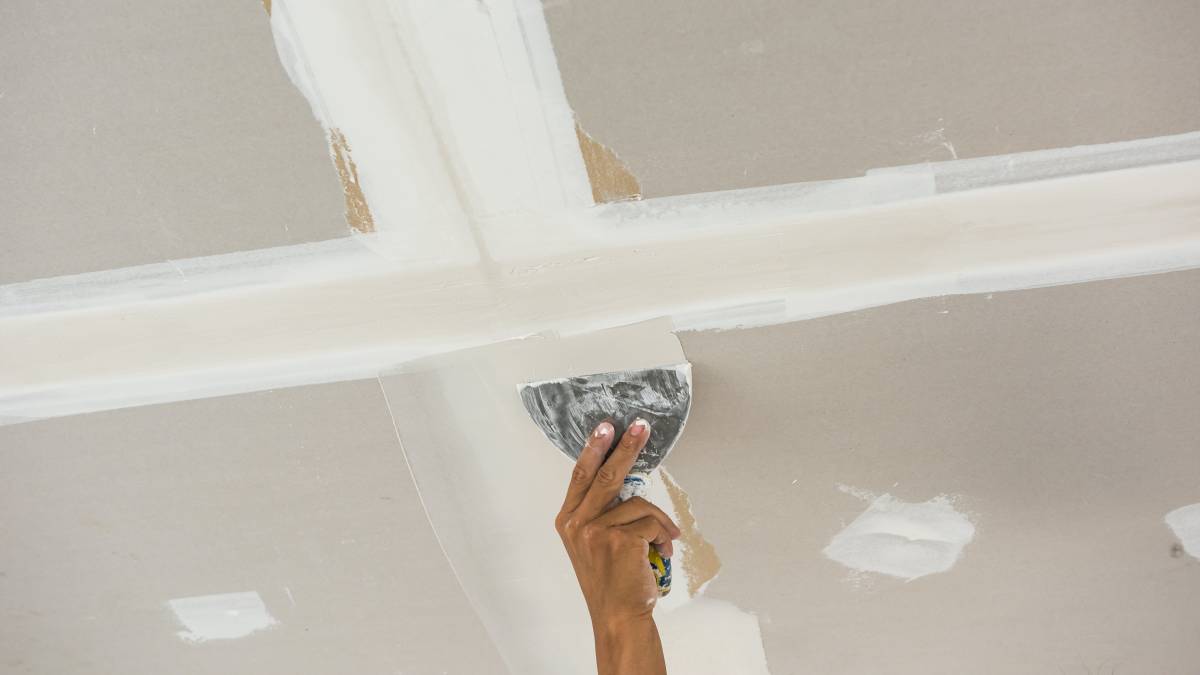
If you know how to skim, you can probably do the plastering. However, DIY attempts can cause more damage without the proper skills and, therefore, add up to the expenses. Hiring a professional prevents this, plus, you are ensured to have a smooth, expert finish. DIY can also cost you more time, as one weekend may not be enough. Plus, you may need special tools such as scaffolding.
You can still save some money by clearing the rooms (if not empty) before the plasterer begins work. If there are radiators, you may need to call a heating engineer to remove them.
Ceiling plastering quotes from Taskers
Ceiling plastering costs around £100 to £800, depending on the type of plaster, the current condition and the size of your plaster, etc. For a more accurate quotation, you may talk to a Tasker and provide the details of your ceiling plastering requirements. While at it, you may also ask your Tasker about plastering your walls or repairing your existing plaster.
Save time and make sure that your plaster project is done properly. To get an accurate quote for plastering, put up a task now and connect with a reliable Tasker in minutes! It’s a fuss-free, convenient, and cost-effective choice.
FAQs
Since plastering is a highly-skilled trade with its own required tools, scaffolding and techniques, you will need someone good at it. When looking for plastering professionals, check the reviews, sample photos, and their information and ask yourself if the work they have undertaken is similar to what you need. It will also help if they specialise in a particular type of plastering, have an NVQ or City & Guilds qualification, and have enough experience in plastering.
Normally, you do not, unless you live in a listed property where any change is subject to approval. To be sure, contact your local authority to confirm if you need to apply for a permit.
The recommended time frame is to have your ceiling plastered every ten years. But take note that some high-quality finishes may last longer than others. But if you have roof leaks or damp stains, you may want to have it plastered immediately.
Your plasterer will use floor coverings to protect your floor areas before they start plastering. But it would help to clear furniture out of the way.
Depending on the conditions, you may start decorating the area after three days. If you have spare time, it’s still best to wait longer.
Find ceiling plasterers, fast
Post a task
Related price guides
Related articles
